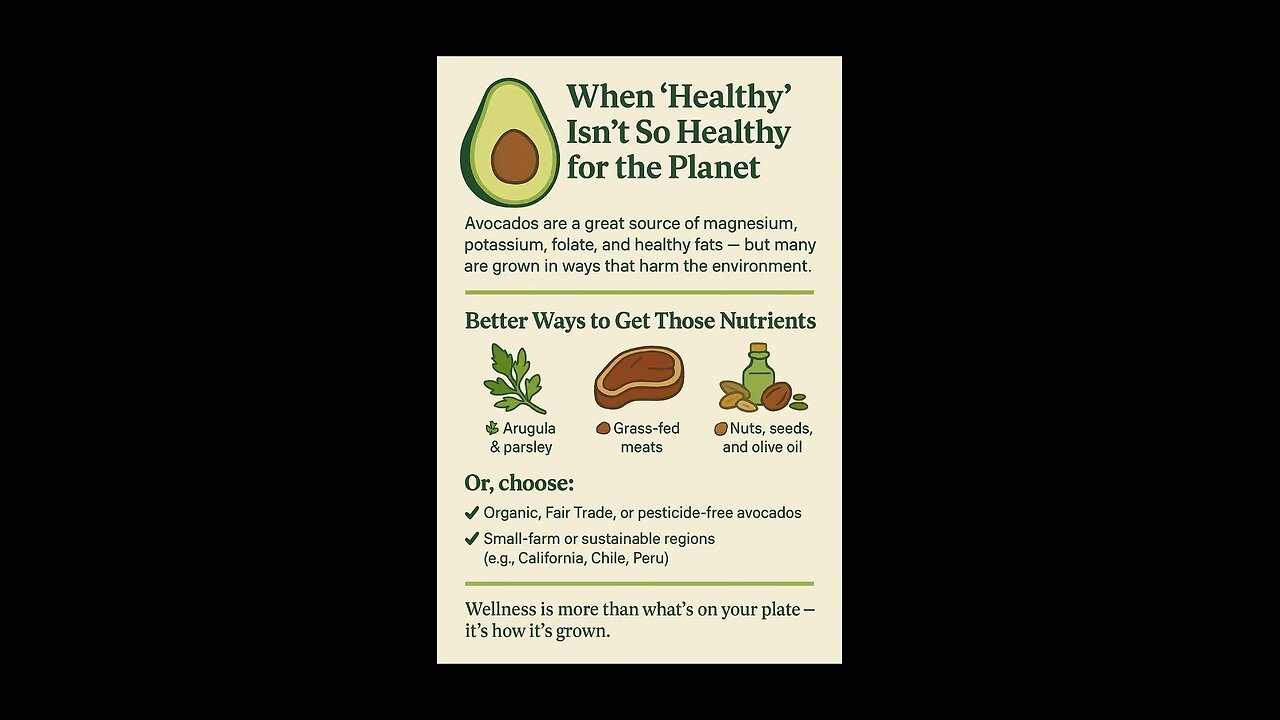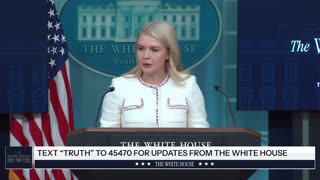Premium Only Content

🥑 When “Healthy” Isn’t So Healthy for the Planet
Avocados are known for their heart-healthy fats and impressive mineral content — magnesium, potassium, and folate. But what if your go-to “superfood” is quietly harming the environment that makes real nutrition possible? 🌎🐝
⸻
🌱 The Big Question
Are we calling something healthy just because it’s good for humans — or should it also be good for the planet?
Avocado farming has exploded worldwide, especially in Michoacán, Mexico, where forests are cleared to plant massive orchards. These monocultures often rely on fungicides and insecticides that harm pollinators, deplete soil nutrients, and dry up rivers.
If bees are dying to make our avocado toast, can it still be called a sustainable food?
⸻
💚 The Nutrient Debate
Avocados are great — but not irreplaceable. Many of their key nutrients can be found in foods that don’t come with deforestation or bee losses:
🥬 Arugula & parsley – loaded with potassium, folate, and antioxidants.
🥩 Grass-fed meats – provide magnesium, zinc, and healthy fats.
🌰 Nuts, seeds, & olive oil – heart-healthy fats with a smaller ecological footprint.
So, what’s really “super”? The food itself — or the system that grows it?
⸻
✅ Mindful Choices
If you can’t imagine life without avocados:
✔️ Choose organic, Fair Trade, or pesticide-free options.
✔️ Buy from smaller farms or sustainable regions (California, Chile, Peru).
✔️ Support pollinator projects that replant forests and protect bees.
⸻
🧠 Final Thought
Health isn’t just personal — it’s environmental.
Your diet shapes more than your body; it shapes ecosystems, too.
Can a food truly be “clean” if its production leaves a toxic footprint?
The next time you eat for your health — ask if your food is healthy for the planet, too. 🌍✨
-
 LIVE
LIVE
Side Scrollers Podcast
4 hours ago🔴FIRST EVER RUMBLE SUB-A-THON🔴DAY 4🔴WAKE YOUR ASS UP!
959 watching -
 LIVE
LIVE
World2Briggs
49 minutes agoWhere should you live? Ask me Live
31 watching -
 LIVE
LIVE
LFA TV
18 hours agoLIVE & BREAKING NEWS! | THURSDAY 10/23/25
1,254 watching -
 1:32:57
1:32:57
The White House
2 hours agoPresident Trump Makes an Announcement, Oct. 23, 2025
15.5K16 -
 1:04:21
1:04:21
DeVory Darkins
5 hours agoDemocrats PANIC by launching ICE doxxing portal as Newsom suffers MAJOR LEGAL BLOW
141K65 -
 LIVE
LIVE
StoneMountain64
4 hours agoBattlefield 6 Battle Royale Prep and Season 1 is coming
39 watching -
 42:20
42:20
Rebel News
2 days agoTommy Robinson tours Jerusalem's historic City of David
10.5K30 -
 1:10:52
1:10:52
The White House
5 hours agoPress Secretary Karoline Leavitt Briefs Members of the Media, Oct. 23, 2025
40.3K21 -
 48:40
48:40
iCkEdMeL
4 hours ago $4.46 earnedMafia Ties EXPOSED: NBA Stars Busted in Massive Gambling Ring 💥
23.2K11 -
 46:29
46:29
Professor Nez
4 hours ago🚨I HAVE RECEIPTS! They’re Sacrificing Americans for Votes 😡
19K7